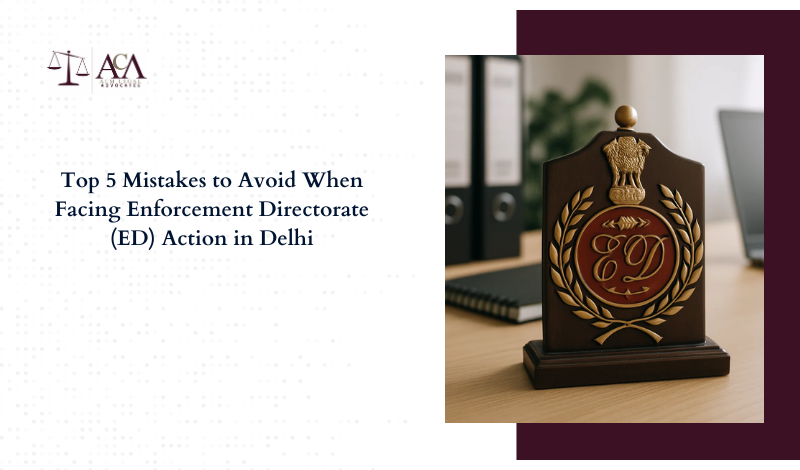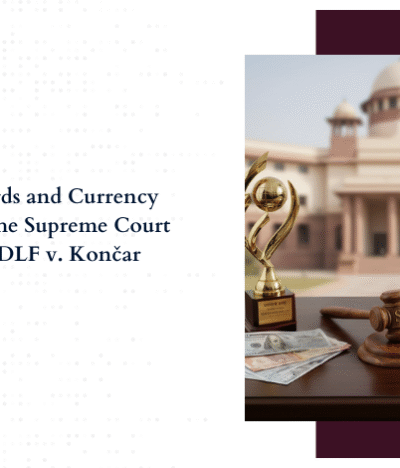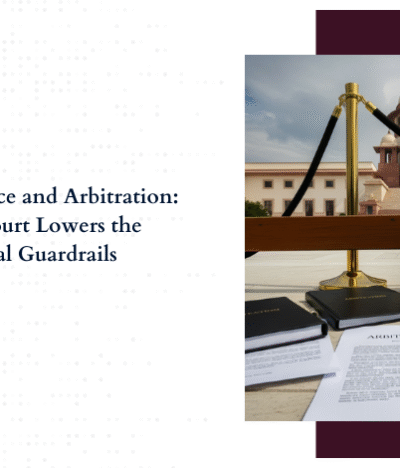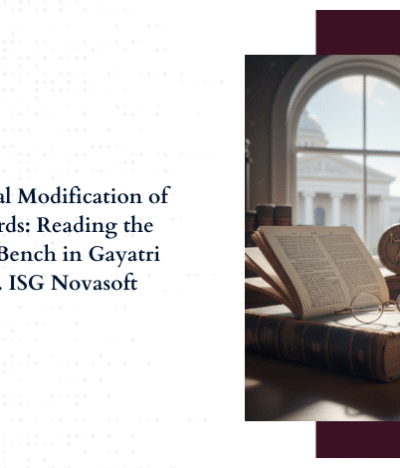1. Ignoring the Distinction Between Summons and Arrest Powers
- Section 50 PMLA summons empowers ED to call individuals for questioning and inspection—but does not authorise arrest. Arrests require a separate power under Section 19, supported by a written “reason to believe” and material justification.
- Many inadvertently comply with summons without appreciating that arrest is not an automatic consequence. This can lead to over‐cooperation and self-incrimination beyond statutory scope.
Avoidance Tip: Engage ED Lawyers in Delhi before responding. Politely request clarification of the statutory basis if ED intimates arrest in context of summons.
2. Failure to Assert the Right Against Self‑Incrimination and Misreading Article 20(3)
- Individuals appearing on summons under Section 50 are not formally “accused” under PMLA; statements made are admissible. Article 20(3) protection against self-incrimination does not apply at this stage.
- Many are unaware of their limited ability to refuse answering, leading to uncompelled disclosures that may later be used in evidence.
Avoidance Tip: Treat summons appearances as mandatory but strategic. Work with counsel to pre‑structure responses and avoid reckless disclosures.
3. Non‑Cooperation or Evasion During Summons Appearance
- Under Section 63 PMLA, refusal to answer or provide documents—without valid grounds—can attract penalties. ED may construe non‑cooperation as obstruction, triggering coercive measures later.
- Yet, over‑disclosure or indiscriminate compliance may expose you to unnecessary risk.
Avoidance Tip: Attend summons with legal support from ED lawyers in Delhi, provide accurate, concise answers, and avoid evasive behaviour or silence. Offer lawful clarifications without volunteering extraneous material.
4. Failing to Challenge Procedural Defects Promptly
- Delhi High Court has held that summons are not quashable merely because they lack documentary attachments for confrontation. Nonetheless, procedural infirmities—improper compliance or arbitrary issuance—can sometimes be challenged. Particularly, arrest orders without proper recording of reasons may be invalid.
- Some clients wait too long and miss the opportunity to invoke judicial review at an early stage.
Avoidance Tip: Seek judicial intervention immediately where ED violates procedural mandates—such as arrest without recorded reasons, or interrogations at unreasonable hours inconsistent with ED guidelines.
5. Not Aligning Legal Strategy with Evolving Jurisprudence on Arrest and Bail
- Supreme Court recently clarified that ED’s power to arrest under Section 19 must be exercised only after cognisance by the Special Court, and must consider all exculpatory materials equally—not just inculpatory ones.
- However, cases continue where the same evidence seen as insufficient for summons later becomes basis for arrest. This inconsistency must be legally challenged.
Avoidance Tip: Ensure counsel reviews all ED material and identifies exculpatory facts. If arrested, file early judicial review and argue bail based on selective non‑consideration of exonerative material.
Procedural Flow: Avoidable Missteps at a Glance
| Phase | Common Mistake | Recommended Approach |
| Summons stage | Blind compliance without counsel | Be represented, respond strategically |
| Statement recording | Volunteering excessive information | Stay precise; answer only what’s asked |
| Document production | Excessive or disorganized submission | Submit organised, lawful documentation |
| Arrest station | Failing to demand written reasons to believe | Request and preserve procedural records |
| Judicial challenge | Delay in filing writs or appeals | Engage High Court promptly to test legality |
Legal Remedies and Safeguards
- Judicial review is available when ED arrests without proper grounds or ignores exculpatory facts. Delhi Courts emphasise that arrests must not reflect “whims and fancies” of IOs, but conform to statutory safeguards and objectivity.
- Complaints against ED conduct, such as nocturnal interrogations or undue delay, may be lodged under High Court grievance channels. The ED’s October 2024 circular mandates interrogation during “earthly hours” and prohibits keeping individuals waiting unduly.
- Appeals and Writs must be filed within statutory timelines, including challenges to ECIRs, summons, attachment or arrest orders.
Conclusion
Early legal intervention and measured compliance can substantially reduce peril when navigating ED’s protracted and highly technical investigation regime. For defence against ED action in Delhi, consulting a lawyer experienced in PMLA matters from the outset is crucial.






